The Spanish love a bit of gossip just like anyone else.
Whether you’re in Mexico or Spain, there are plenty of slang terms to describe the kind of gossip you’re talking about, too.
Today, we’re going to look at some of the most common slang terms for gossip in Spanish, so let’s get started.
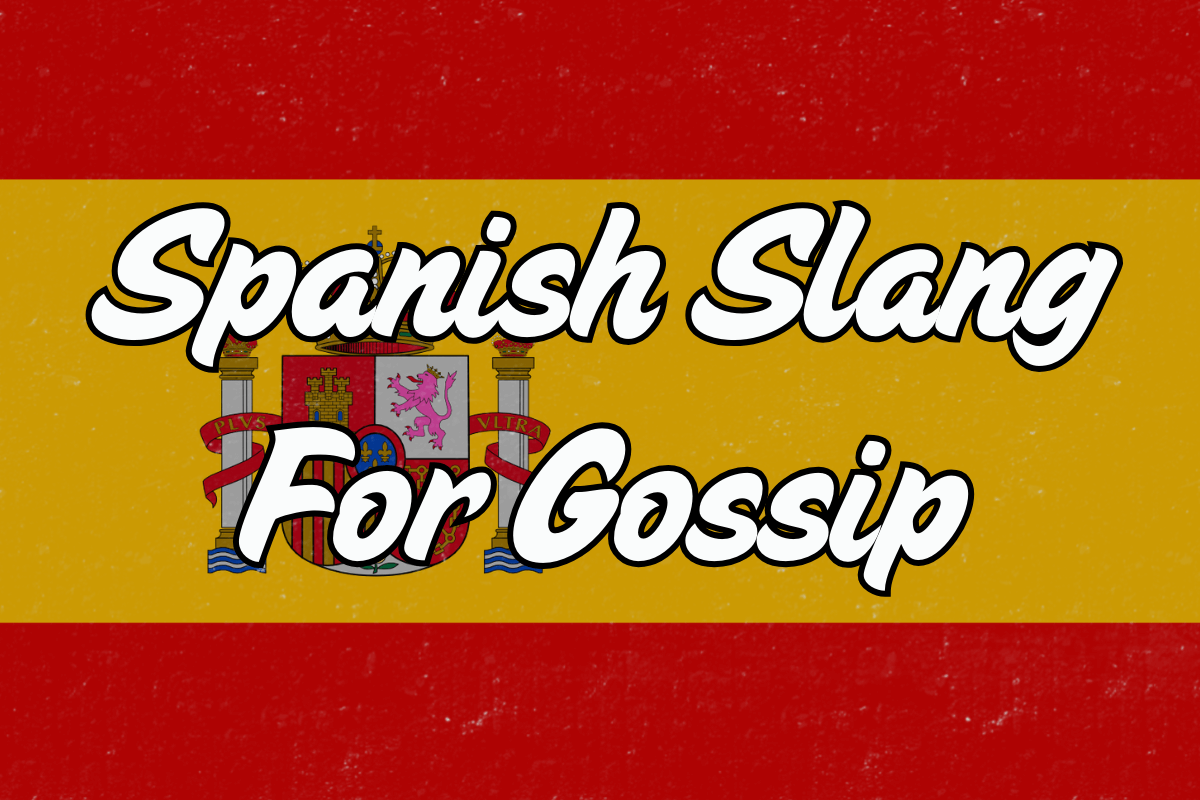
Charla
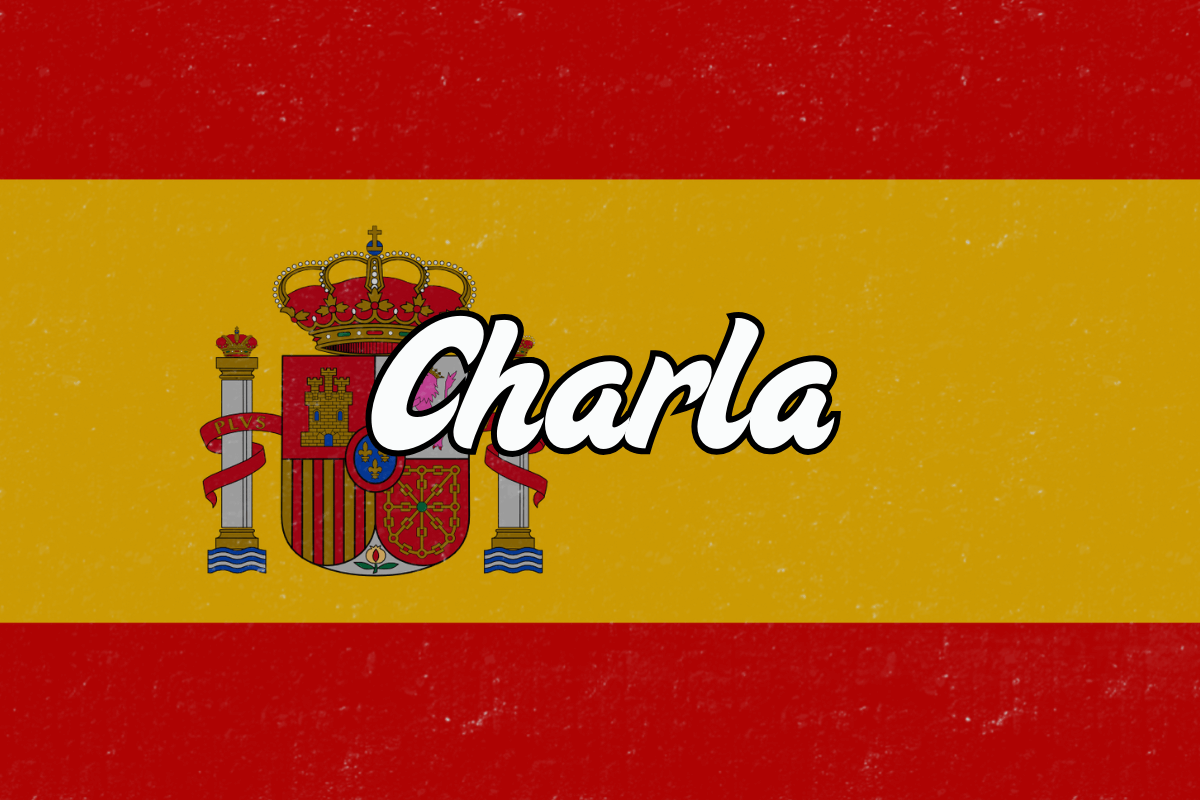
“Charla” refers to simple chatter or small talk, a term that is often used for casual conversation.
In the context of gossip, “charla” can refer to the kind of gossip that happens during light, casual conversation, where the exchange of information may not always be serious but can still involve personal details.
It is a backformation of the verb “charlar,” which means “to chat.”
The verb itself was derived from the Italian “ciarlare,” which specifically referred to chatter associated with gossip.
So while “charla” can simply refer to casual talking, it often carries a connotation of gossip as well.
Examples in sentences:
- “We were just having a bit of charla, nothing serious.”
- “They spent the afternoon chatting, gossiping, and sharing some good charla.”
- “Did you hear that charla about Juan’s new job?”
- “It’s always fun to have some light charla with friends over coffee.”
- “The charla at the party was all about the latest news in town.”
Chisme
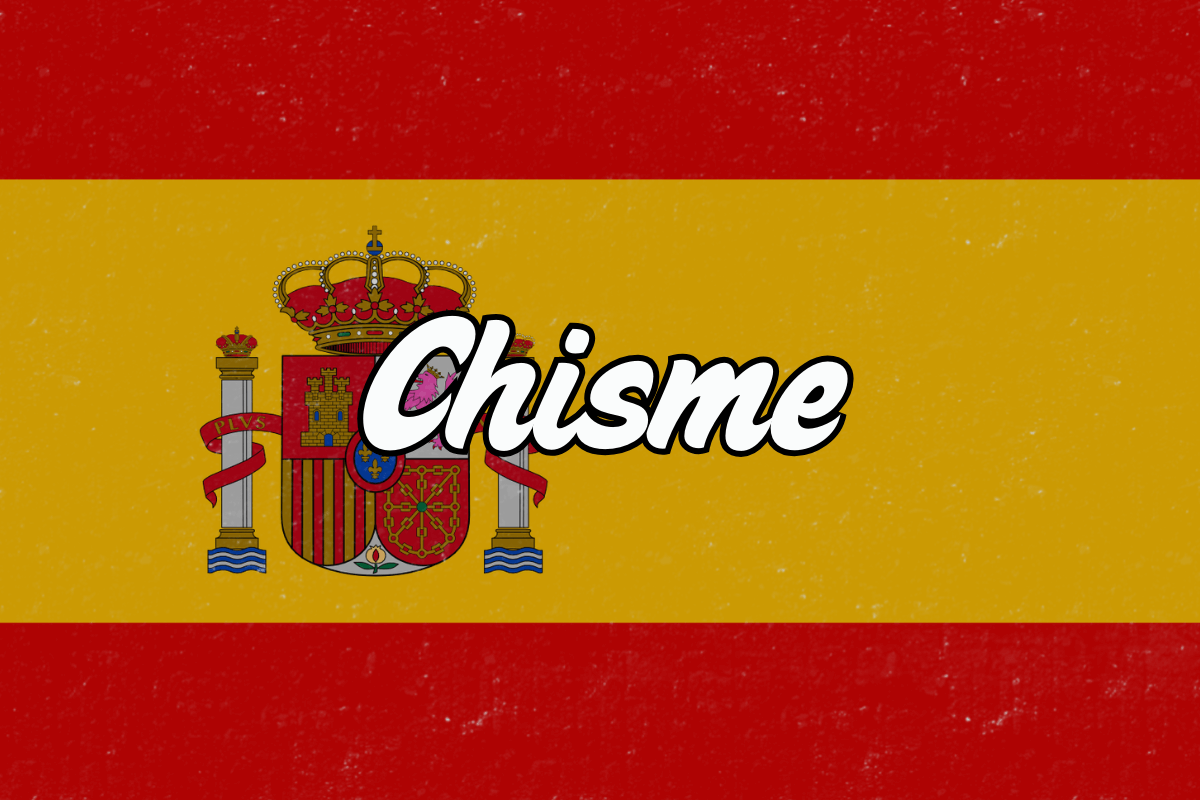
“Chisme” or “chismes” is the most common Spanish term for gossip.
It’s so widely used that it treads the line between being slang and standard, accepted Spanish.
From Mexico to Chile to Spain, you’ll hear this term often to refer to tattling, scandals, rumors, or whispered secrets.
The word “chisme” has its roots in Ancient Greek and Latin.
The Latin word for scheme, “schisma,” comes from Greek, and Spanish adopted the term for gossip from Latin.
So, it’s gossip in the sense of schemes and plots.
Examples in sentences:
- “Did you hear the latest chisme about Marta?”
- “Stop spreading chismes, you don’t know if they’re true!”
- “That’s all people talk about here—just chismes all day.”
- “I heard some juicy chisme about the boss yesterday.”
- “Why is everyone so interested in chismes?”
Chismorreo
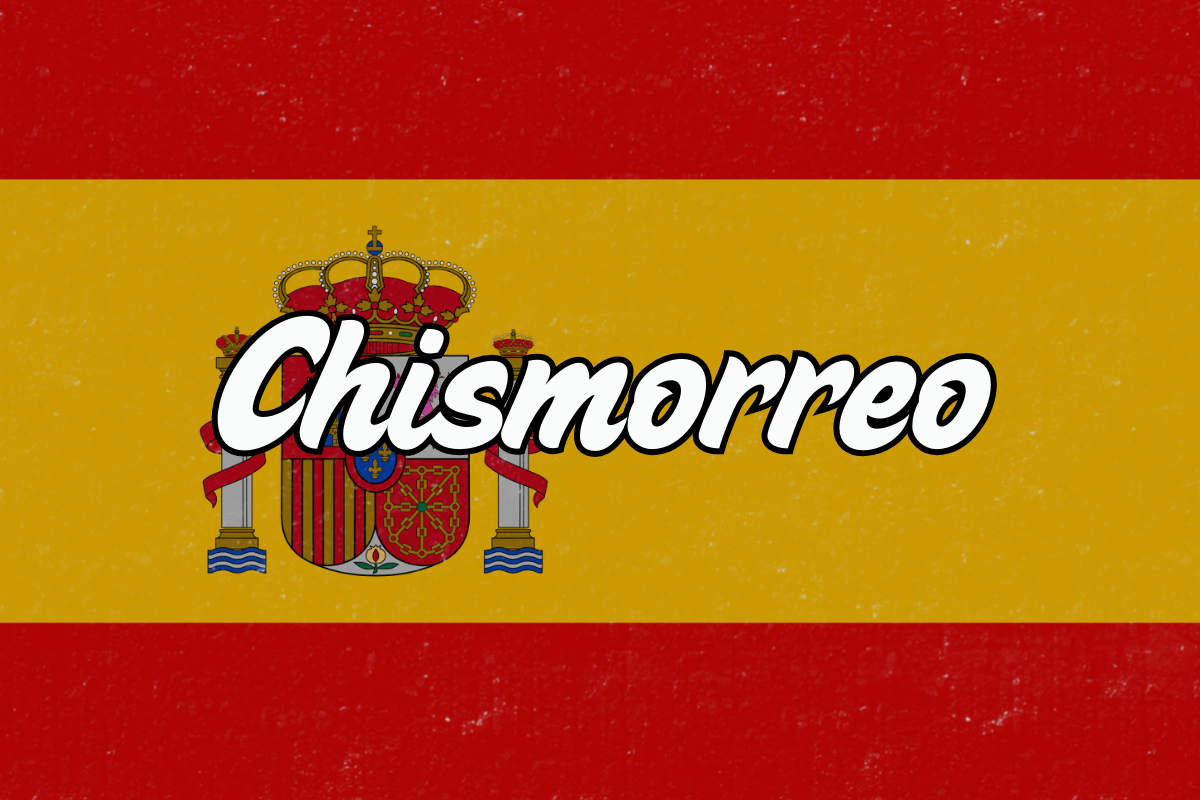
Following on from “chisme,” another slang form is “chismorreo.”
This term also refers to gossip and scandal, but it emphasizes the event or situation that leads to the gossip.
While “chisme” refers to the gossip itself, “chismorreo” can also describe the scandalous event that triggers the talking.
The term “chismorreo” comes from the verb “chismorrear,” which means “to gossip” or “to chatter.”
It’s considered a deverbal form, meaning it’s derived from the verb form of the word.
Like “chisme,” it shares the same root and is essentially a variation of the same concept.
Examples in sentences:
- “The chismorreo around town is all about the new scandal.”
- “Did you hear the chismorreo about what happened at the party?”
- “All they do is sit around and talk about the chismorreo in the neighborhood.”
- “The chismorreo was so big that it reached the news.”
- “That’s not just chisme, it’s pure chismorreo!”
Chismoso
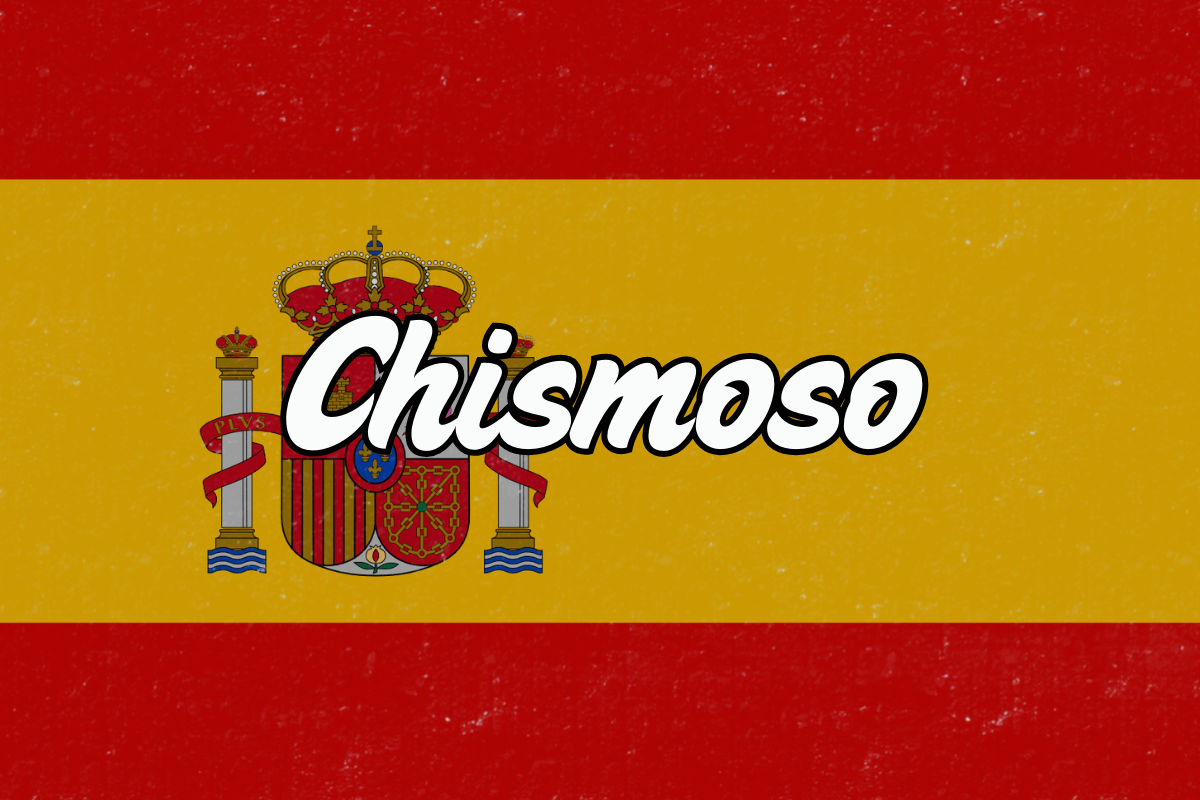
“Chismoso” is another form of the slang terms related to gossip, but it has a slightly different meaning.
A “chismoso” is someone who loves gossip—think of them as a “gossipmonger” or someone who constantly whispers around town.
It refers to a person who talks too much and enjoys spreading rumors or sharing other people’s business.
While it’s primarily used to describe a person, it can also be used more generally to describe the act of gossiping.
The term is derived from the same root as “chisme” and “chismorreo,” but has taken on a more specific grammatical form to refer to a person rather than the event or the gossip itself.
Examples in sentences:
- “Don’t be such a chismoso, stop talking about everyone’s business.”
- “He’s known as the biggest chismoso in the office.”
- “She’s always so quiet, unlike that chismoso over there.”
- “Stop being a chismoso and mind your own business.”
- “They call him a chismoso because he’s always the first to know everything.”
Comadre/Comadreo
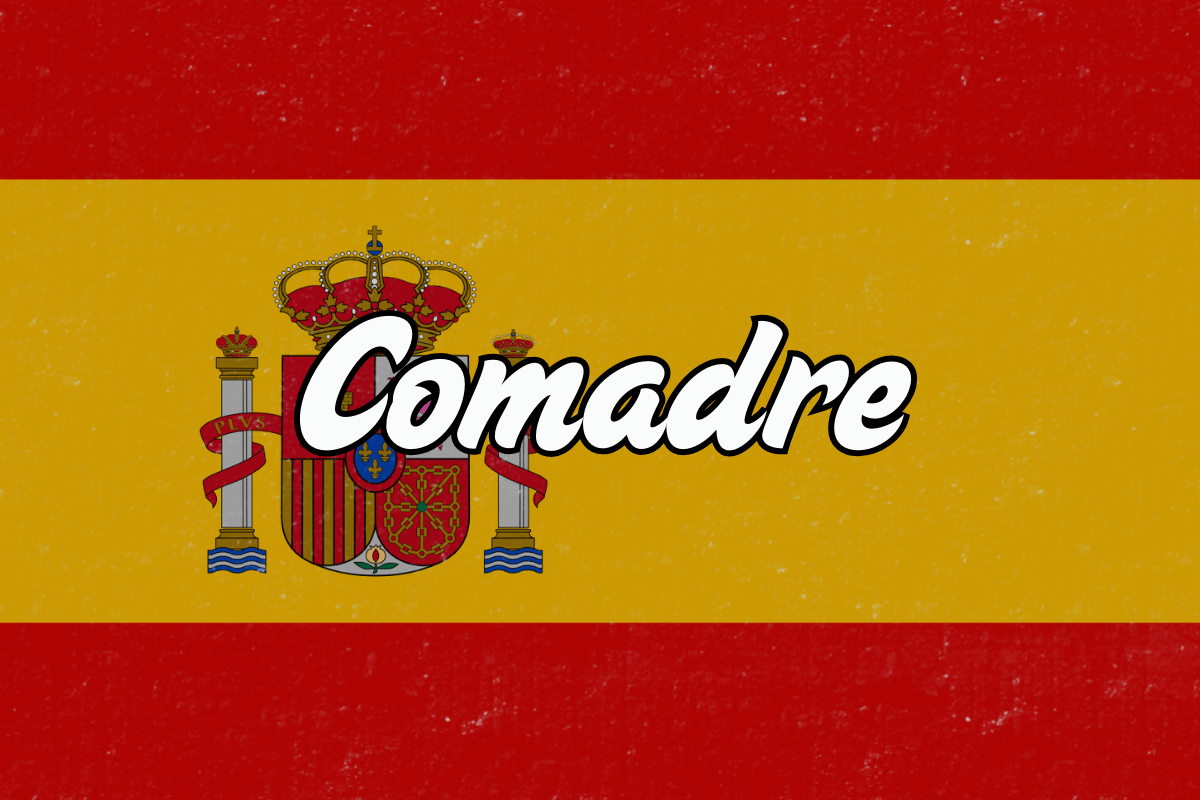
“Comadre” has a double meaning in Spanish.
On one hand, it refers to a midwife, but in slang, it means a gossipmonger—someone who loves spreading rumors.
This connection likely comes from the idea that midwives were often community figures who knew and spread local news.
Meanwhile, “comadreo” is the noun form for gossiping itself, similar to “chatter” or “gossip session” in English.
Both words have their roots in Latin, with *mater* (mother) evolving into *commater* by the 15th century.
Examples in sentences:
- “She’s such a comadre—she knows all the neighborhood gossip.”
- “The comadreo at the market is nonstop.”
- “That comadre loves to spread rumors.”
- “You won’t believe the comadreo I heard today!”
- “Stay away from those comadres if you don’t want to be talked about.”
Comidilla
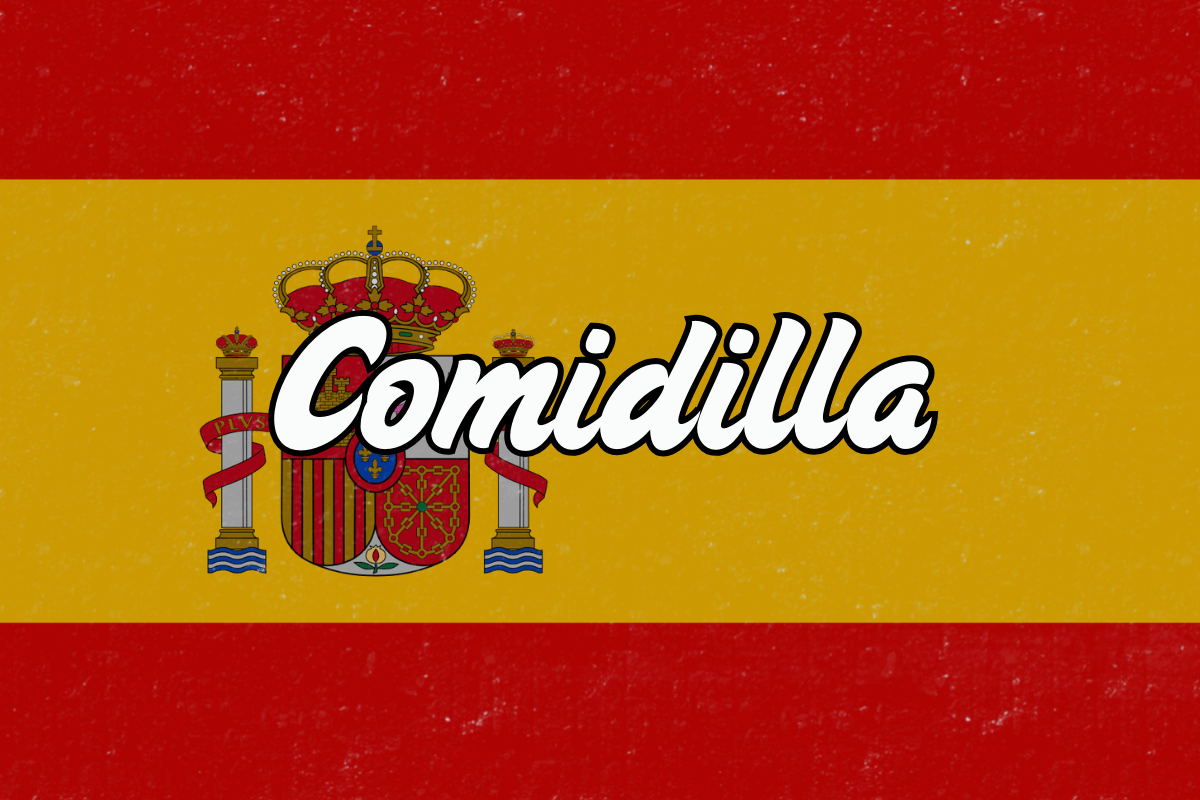
“Comidilla” is a slang term used to talk about the specific gossip or rumors that are circulating in a particular area or community.
It is not about the act of gossiping or the people doing the gossiping, but rather the rumors or stories that are being passed around.
“Rumor” or “byword” are good English equivalents.
Interestingly, the word derives from “comida,” which means “food.”
The idea behind this term might be that the gossip or rumors are “eaten up” or absorbed by the local people, spreading quickly like food passing from person to person.
Examples in sentences:
- “The comidilla in town is that Maria is moving away.”
- “Have you heard the comidilla about the new restaurant opening?”
- “That’s just a comidilla—don’t believe everything you hear.”
- “The comidilla about the mayor’s scandal is everywhere.”
- “It’s hard to keep a secret here; everything becomes comidilla.”
Habladurías
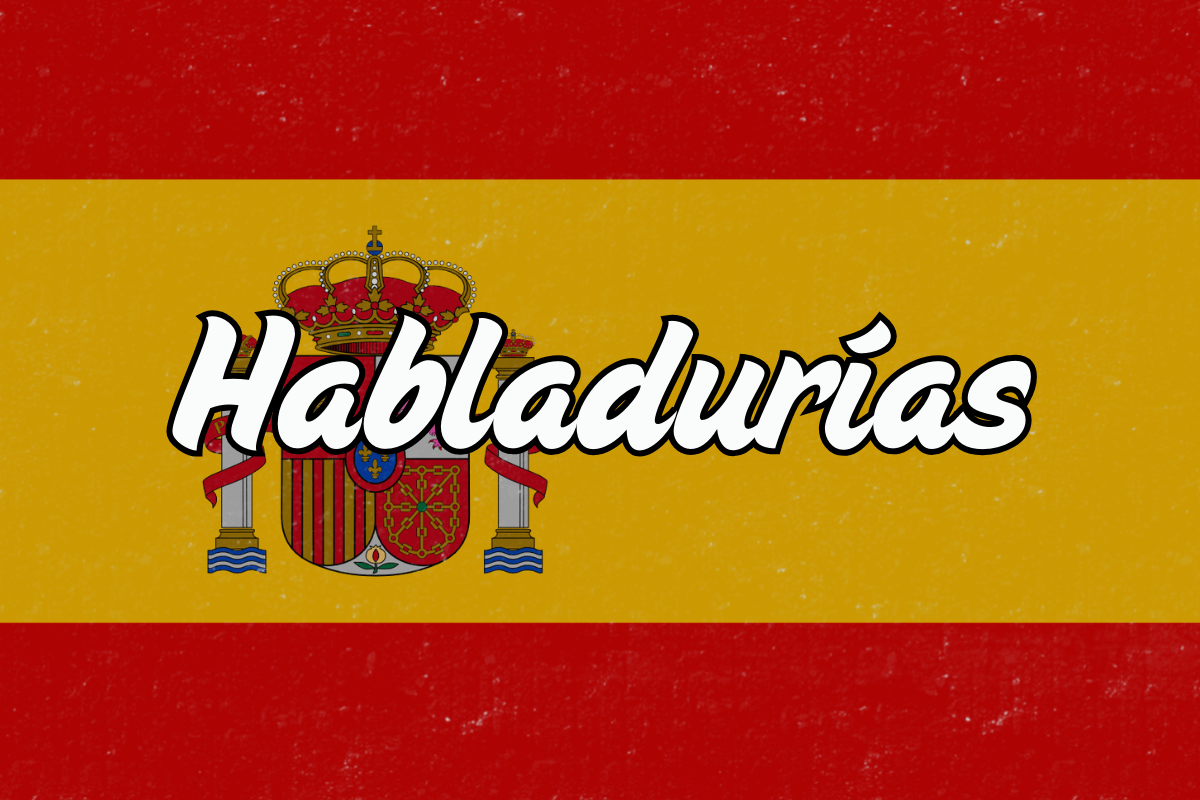
“Habladurías” refers to idle talk, rumors, or hearsay—essentially the kind of speech that fuels gossip.
It comes from the verb hablar (to talk), making it closely related to the general idea of chatter.
This term carries a slightly negative connotation, often implying unfounded rumors or unnecessary speculation.
It’s similar to the English word “hearsay” and is used throughout the Spanish-speaking world.
Examples in sentences:
- “Don’t believe all the habladurías you hear in town.”
- “She’s always caught up in some habladurías.”
- “That’s just habladurías—there’s no proof.”
- “The habladurías about their breakup spread quickly.”
- “Ignore the habladurías and focus on the facts.”
Mala lengua
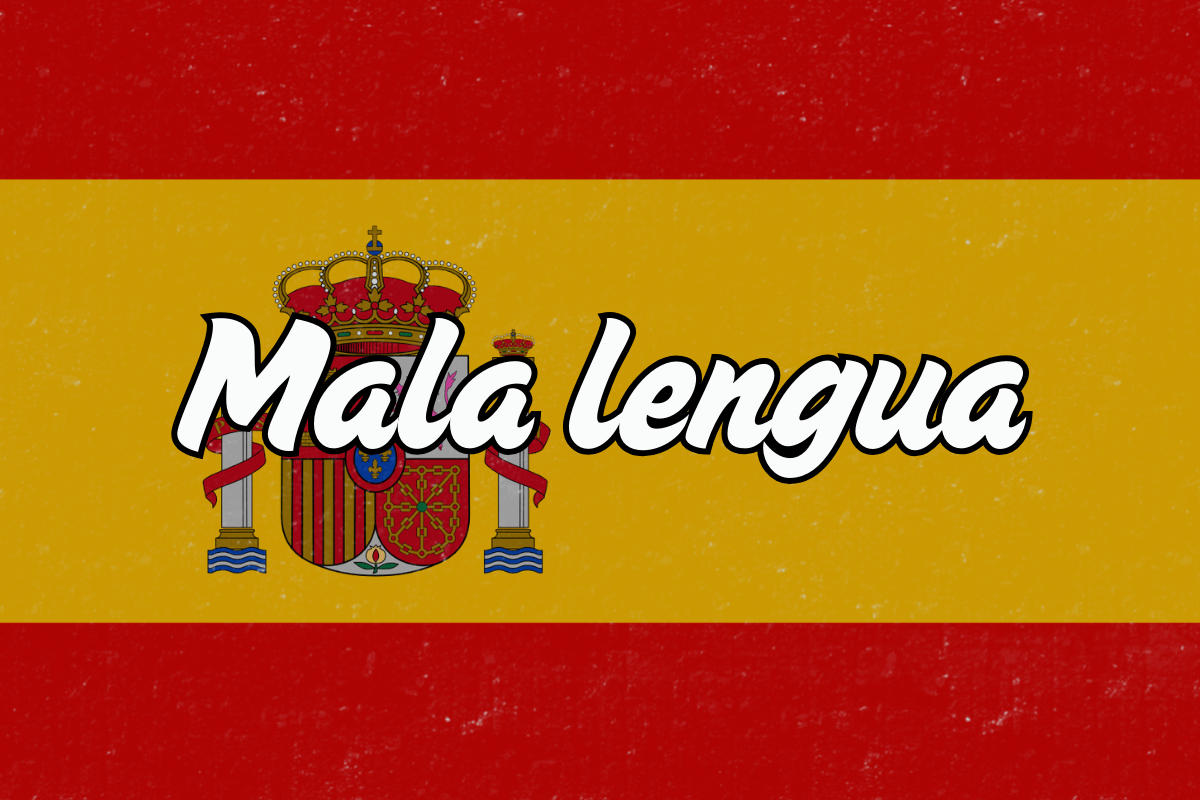
“Mala lengua” refers to people spreading rumors, chattering, and whispering about things they may not fully know.
The phrase carries a negative connotation, implying that the gossip is harmful or untrue.
Since it translates to “bad tongue,” it highlights the idea of someone using their words irresponsibly to spread gossip.
This term is commonly used in Spanish-speaking countries to describe those who stir up trouble with their words.
Examples in sentences:
- “Don’t listen to her—she has a mala lengua.”
- “This town is full of people with mala lengua.”
- “He lost his job because of someone’s mala lengua.”
- “Spreading mala lengua can ruin friendships.”
- “That’s just mala lengua—there’s no truth to it.”
Murumador
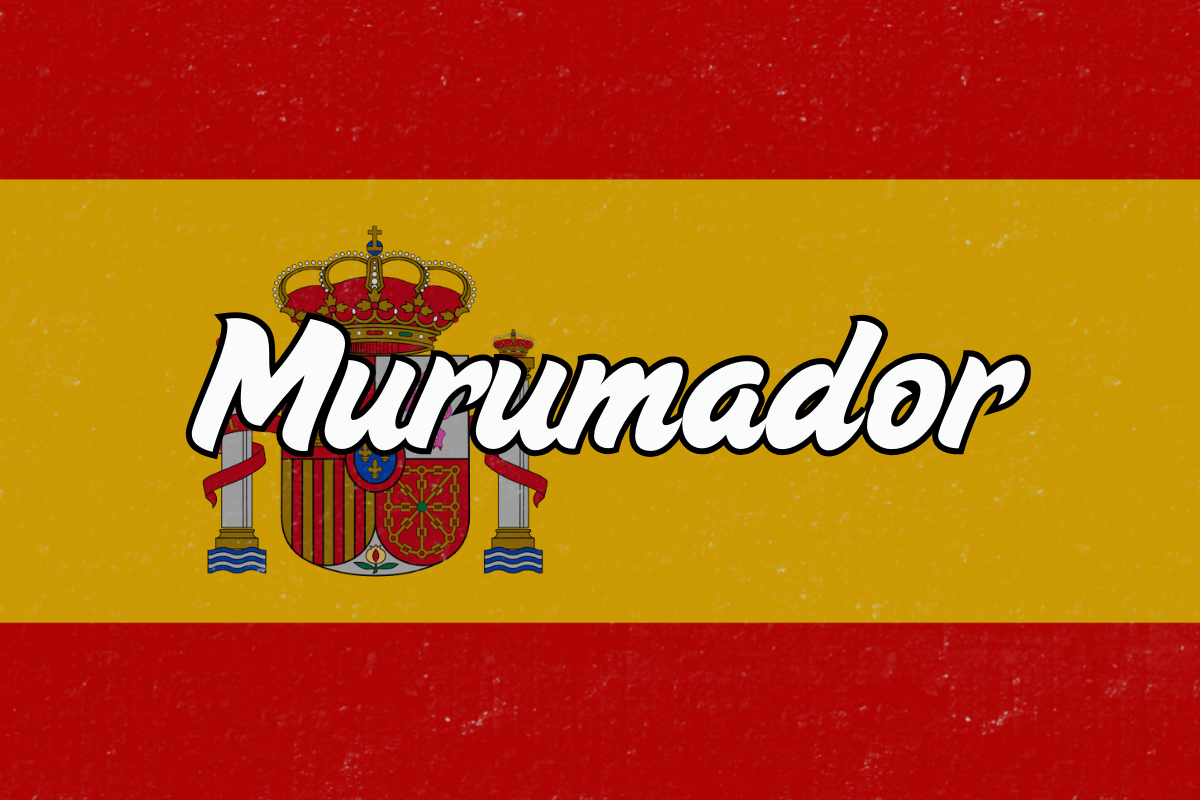
Similar to the English word “murmur,” the Spanish term “murumador” refers to someone who spreads gossip through hushed whispers.
It conveys the image of rumors quietly traveling from person to person.
The word comes from Old French, just as it does in English, originating from “murmure,” which refers to the sound of soft speech.
While not as commonly used today, it still holds the essence of secretive chatter and spreading gossip.
Examples in sentences:
- “He’s such a murumador—always whispering about others.”
- “The murumadores in town have already started talking.”
- “Rumors spread quickly when a murumador gets involved.”
- “She’s known as the biggest murumador in the office.”
- “A true murumador never keeps a secret for long.”
Parloteo
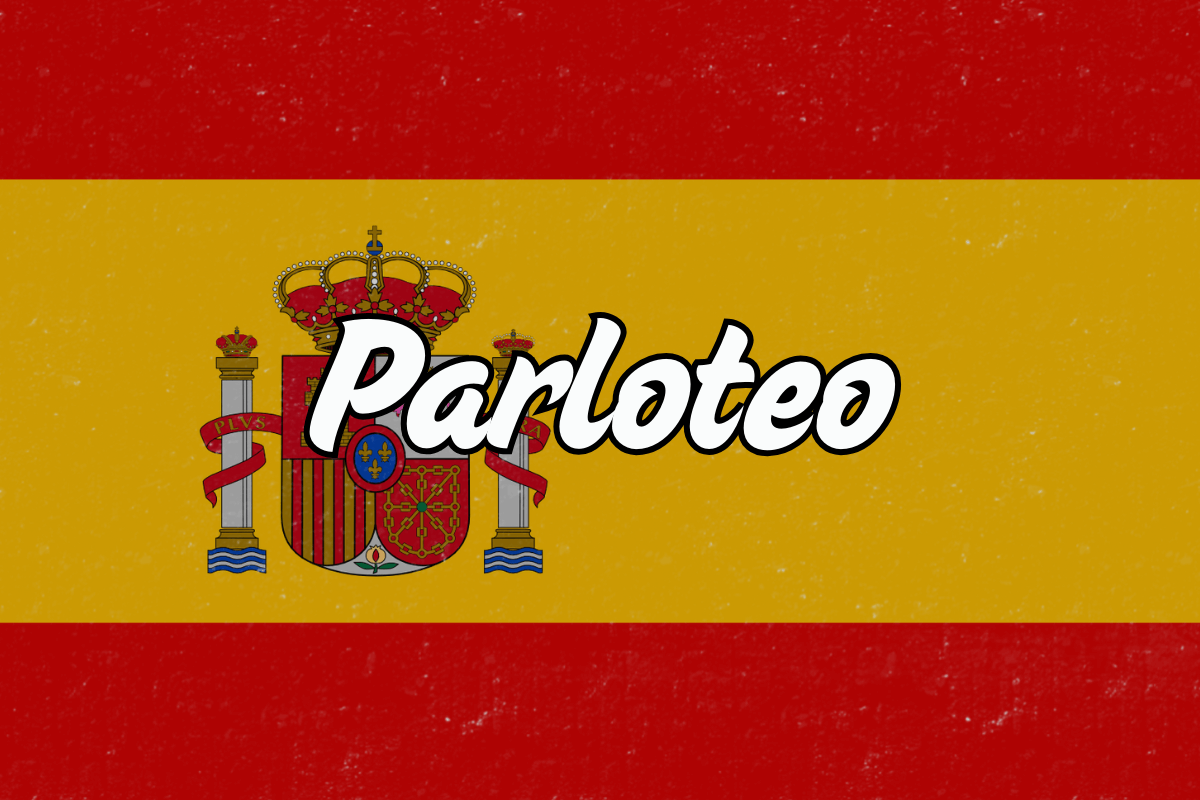
“Parloteo” refers to pointless or excessive talking, which frequently includes gossip.
It’s often used in a dismissive way to describe talk that has no real substance.
The word originates from the French “parler,” meaning “to speak.”
The Spanish suffix “-oteo” gives it a somewhat derogatory tone, emphasizing that the speech is unnecessary or excessive.
Examples in sentences:
- “Enough with the parloteo! Let’s focus.”
- “Their parloteo is always full of gossip.”
- “I can hear the parloteo from across the room.”
- “That group never stops their endless parloteo.”
- “Don’t get caught up in the parloteo—it’s all rumors.”
There are plenty of ways to refer to gossip in Spanish slang, then.
Gossip itself is rather an ambiguous word in some ways, since some use it just to refer to basic chatter.
So, depending on the context, any of these words may or may not specifically refer to gossip.
I suppose it mostly depends on what is being chatted about!

